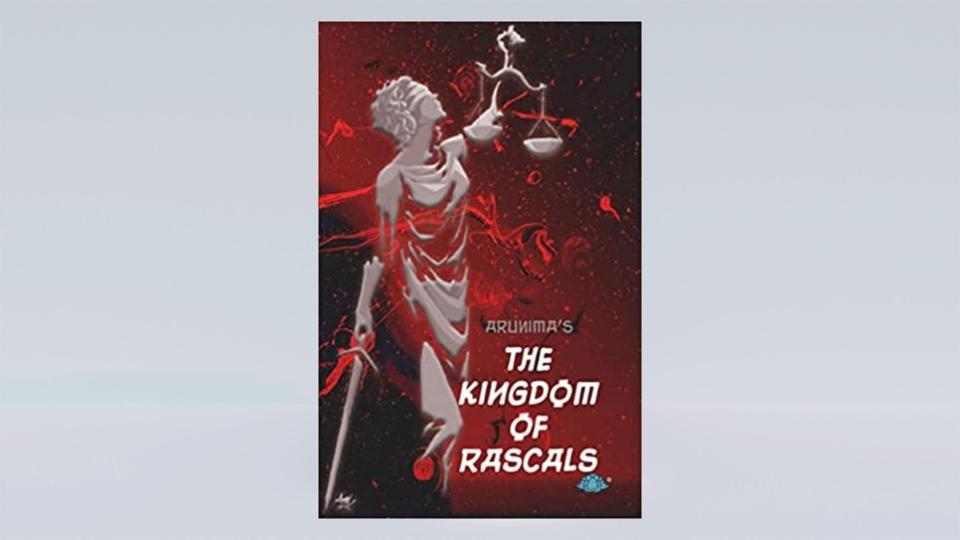In “Kingdom of Rascals,” the circumstances and situations faced by the characters are not merely random occurrences, but rather an organic outgrowth of the world they inhabit. The choices they make, although difficult, are grounded in a profound understanding of their realities, highlighting the inherent complexity of human existence. By doing so, the author invites readers to reflect on their own lives and ponder the extent to which our own actions are shaped by the world around us. The author’s masterful storytelling weaves a tapestry of narratives that effortlessly blend into the fabric of this familiar yet extraordinary world. From the moment readers embark on this literary journey, they are captivated by the vividness and authenticity of the characters’ experiences. Arunima G’s astute observations and attention to detail bring forth a sense of believability, making it easy for readers to immerse themselves in the lives and struggles of the individuals portrayed.

One of the key strengths of Arunima G’s writing lies in her ability to resonate with readers on a deeply emotional level. The novel’s exploration of the human condition, with its triumphs and tribulations, evokes a range of emotions, from empathy and compassion to awe and wonder. As readers are drawn into the tapestry of interconnected stories, they are confronted with profound insights about the nature of existence and the pursuit of one’s own path in life. “Kingdom of Rascals” stands as a testament to Arunima G’s talent as a storyteller who not only captures the essence of the real world but elevates it to new heights. By presenting a rich and diverse cast of characters, each with their own struggles and triumphs, the novel compels readers to contemplate the profound questions that underlie the human experience. In the end, readers are left awestruck by the power of the written word to illuminate the intricacies of our lives and how closely they align with our ideals.
“Kingdom of Rascals” captivates readers from the very beginning with its unique and striking style of storytelling. Arunima G’s pen wields a remarkable power to present characters in a stark and unfiltered manner, providing an unflinching depiction of the kingdom they inhabit and the suffering they endure. This raw portrayal of their lives brings the narrative closer to reality, allowing readers to resonate with the characters and their experiences on a profound level. Suffering permeates the pages of the book, becoming an integral part of the characters’ existence. Arunima G skillfully weaves a narrative where every twist and turn feels inevitable, making it impossible for readers not to empathize with the characters’ struggles. As the story unfolds, readers find themselves nodding in agreement, acknowledging that the events and hardships faced by the characters were bound to occur given the circumstances they find themselves in.

Within this kingdom, the author exposes the pervasive corruption that exists at various levels. Through the actions, abuses, and sufferings of the characters, Arunima G sheds light on the depth of this corruption, underscoring its detrimental impact on both individuals and society as a whole. The stark portrayal of these corrupt elements serves as a powerful critique, urging readers to reflect on the consequences of such behavior and its ripple effects on the lives of the characters. Amidst the darkness, Arunima G skillfully navigates the thematic landscape of the novel to address pressing issues surrounding women and children. These serious matters are brought to the forefront, highlighting the challenges and injustices faced by these vulnerable groups within the kingdom. By shining a spotlight on these societal concerns, the author prompts readers to confront uncomfortable truths and consider the urgent need for change.
In “Kingdom of Rascals,” Arunima G goes beyond mere storytelling. She crafts a narrative that serves as a platform for social commentary, compelling readers to confront the flaws and injustices that exist within our own world. Through the lens of her characters, the author encourages readers to examine their own roles in addressing moral corruption, advocating for the rights of women and children, and working towards a more just society.
In this way, “Kingdom of Rascals” becomes not only a work of fiction but a call to action. It challenges readers to look beyond the confines of the book and engage with the pressing issues it raises. By doing so, Arunima G elevates her storytelling to a powerful tool for raising awareness, fostering empathy, and inspiring positive change.



